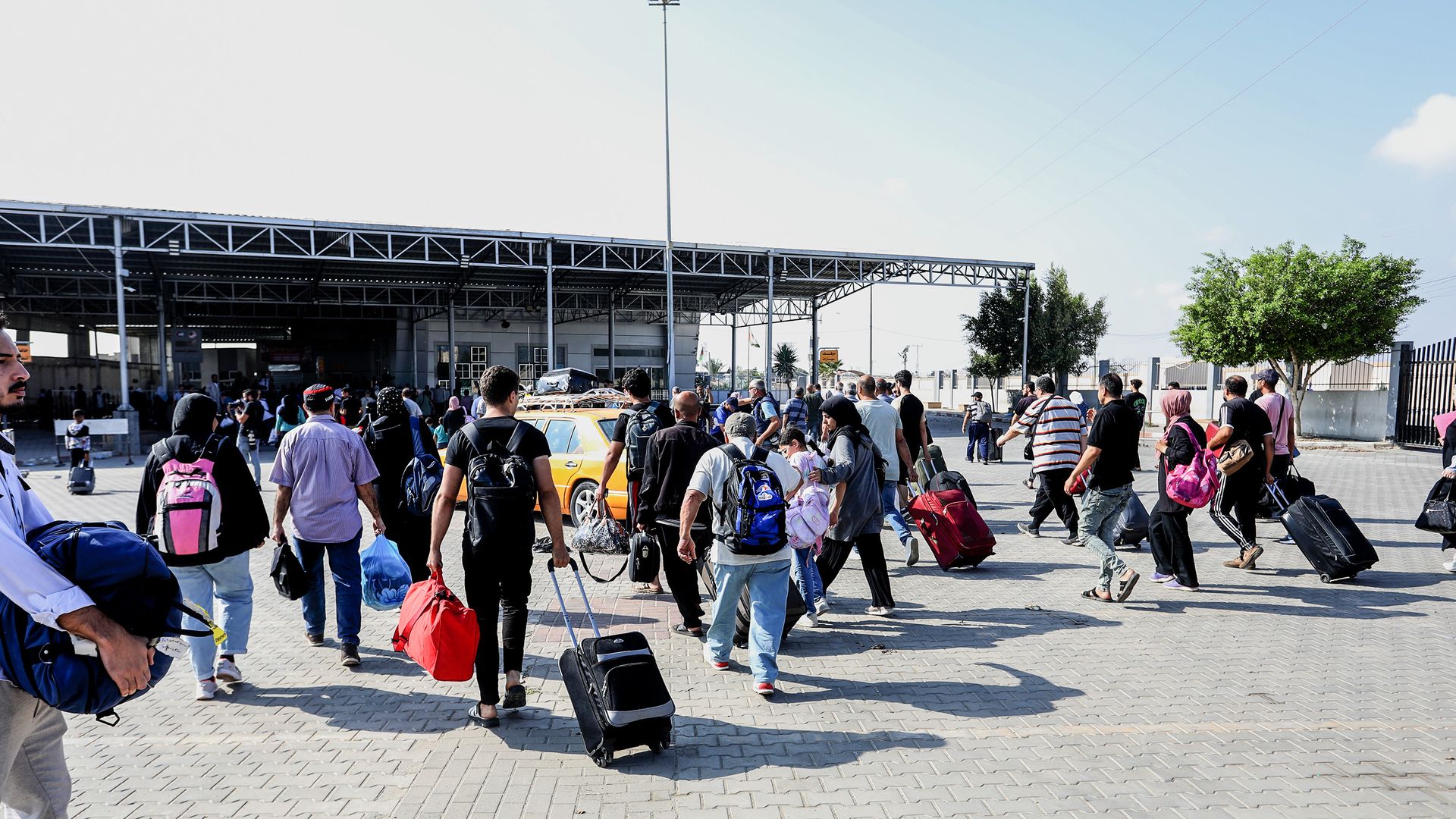Foreigners, wounded Palestinians allowed to leave Gaza for first time since war began
Add Axios as your preferred source to
see more of our stories on Google.

Palestinians with foreign passports at Rafah Border Gate wait to cross into Egypt as the Israeli airstrikes continue. Photo: Abed Rahim Khatib/Anadolu via Getty Images
Palestinians with foreign passports and ambulances carrying wounded people began to leave Gaza through the Rafah Crossing with Egypt on Wednesday.
The big picture: It's the first time anyone has been allowed to leave Gaza since the war began more than three weeks ago.
- While some aid trucks have been allowed to enter Gaza from Egypt, the crossing had remained closed to the movement of people since last month's Hamas attack on Israel.
- There are more than 500 Americans and hundreds of other foreign nationals in Gaza, including UN workers, members of non-governmental organizations and journalists, according to U.S. and Israeli officials.
- The U.S. had blamed Hamas for keeping the crossing closed, while others, including Egypt, said the Palestinian side had been non-operational due to Israeli airstrikes in the area.
Between the line: Even as foreign nationals are allowed to enter Egypt via the Rafah Crossing, it appears the vast majority of Palestinians will not be able to leave Gaza, a densely-populated enclave home to more than 2.2 million people.
- Both Egypt and Jordan have said they are not willing to take in Palestinian refugees from Gaza.
What they're saying: The World Health Organization welcomed Egypt's decision to allow wounded Palestinians to enter the country.
- It noted, however, that "thousands more people inside the Gaza Strip continue to need access to urgent and essential health services amid shortages of medicines, health supplies and other aid such as fuel, water and food."
- They include more than 1,000 people who need kidney dialysis to stay alive, at least 2,000 who need cancer therapy, 45,000 people with cardiovascular diseases, and more than 60,000 people with diabetes, per the WHO.
- "These patients must be able to have sustained access to health care inside Gaza," the WHO said. "Hospitals and other health facilities must be protected from bombardment and military use."
UN envoy to the Middle East Tor Wennesland also welcomed the decision and recognized the work of the U.S. and Egypt on the issue.
- It's an "important step in the right direction, which we need to build on," Wennesland said on social media.
The big picture: The Israeli military has stepped up its bombardment of the Strip since expanding its ground operation last week.
- More than 8,500 Palestinians have been killed amid Israel's air raids since the war began, according to the Ministry of Health in Hamas-run Gaza.
- At least 1,400 Israelis were killed during the Oct. 7 Hamas attack.
- There has been growing pressure worldwide for a humanitarian ceasefire as the conditions in Gaza, particularly in overcrowded hospitals, continue to significantly deteriorate.
This is a developing story. Please check back for updates.

